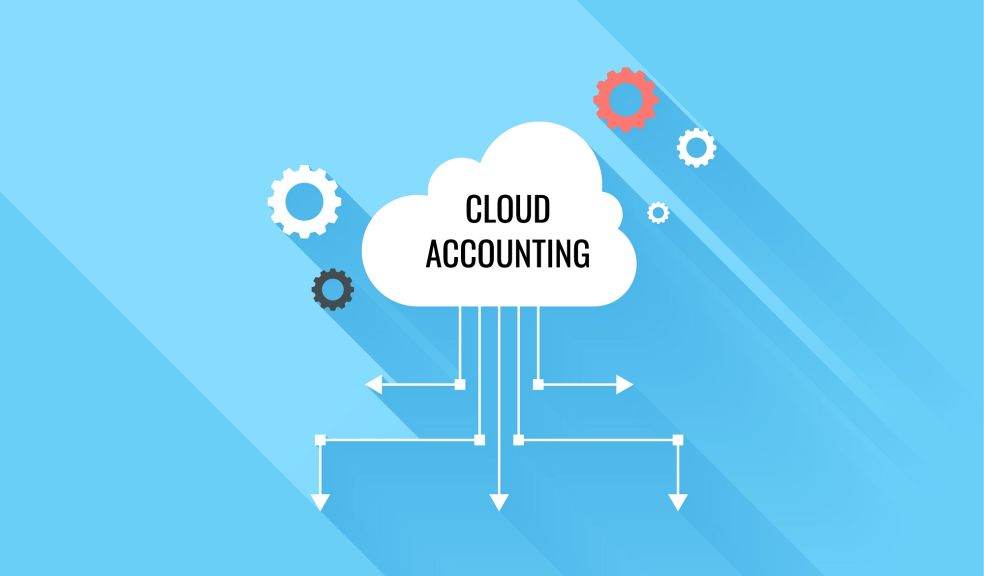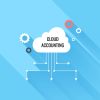
The benefits of cloud accounting for small businesses
The utilization of cloud accounting has changed the approach of small businesses towards their financial management. Unlike conventional accounting software, cloud accounting enables businesses to access their financial data from anywhere and at any time, as long as they have an internet connection. In this article, we will discuss the advantages that cloud accounting offers to small businesses and how it can enhance their financial management.
1. Real-time financial data
Cloud accounting offers a significant advantage in that it enables access to current financial data. By utilizing cloud accounting, companies can view the latest details on their cash flow, expenses, and income. This data can assist businesses in making well-informed choices regarding their finances and detecting opportunities to decrease expenditures or enhance revenue.
2. Automatic updates
The latest features and updates are always available to businesses through cloud accounting software as it automatically updates itself. Manually updating software or buying new versions is unnecessary for businesses. Additionally, automatic updates provide businesses with the latest security features, keeping their financial data safe from cyber threats.
3. Improved collaboration
Cloud-based accounting enables businesses to work together with their accountants and team members simultaneously. This allows them to operate on identical financial information, no matter where they are located. To illustrate, if a business proprietor needs to discuss a financial matter with their accountant, they can both access and examine the same data simultaneously without needing to be in the same place.
4. Reduced costs
Using cloud accounting can bring about a noteworthy reduction in expenses that are related to conventional accounting software. The payment model for cloud accounting is typically subscription-based, which ensures that companies only pay for the features they require and can adjust the plan as they expand. This approach is much more economical compared to purchasing a license for traditional accounting software, which can be quite costly and may require additional payments for maintenance and assistance.
5. Improved accessibility
Through cloud accounting, businesses have the capability to retrieve their financial data from any location that has an internet connection. As a result, businesses can conveniently handle their financial matters even while on the move, whether it is from home, the office, or while traveling. Better accessibility also promotes better teamwork and efficiency, as it enables businesses to work together with their accountants and team members, regardless of where they are located.
6. Automated processes
The utilization of cloud accounting software has the capability to streamline various labor-intensive duties that are typically linked to conventional accounting. Such duties include automatic classification of expenses, bank statement reconciliation, and financial report generation. This not only results in saved time, but also mitigates the possibility of inaccuracies and enhances the precision of financial information.
7. Better decision-making
Cloud-based accounting offers businesses up-to-date financial data, enabling them to make knowledgeable judgments regarding their finances. Such information aids businesses in pinpointing areas where they can reduce expenses or boost revenue, and use precise financial data to make choices. Better decision-making can result in better financial consequences and assist in the success and expansion of businesses.
8. Data security
Ensuring the safety of data is a crucial element for any business, despite its magnitude or sector. With the rising trend of businesses transferring their financial information and data to cloud-based platforms, data security has become more paramount than ever. Below are some essential factors to remember in regard to data security within cloud-based accounting.
-
Password Management
Managing your passwords is an uncomplicated yet highly efficient method to safeguard your cloud-based information. Robust passwords and dual-factor authentication can guarantee that exclusively authorized individuals are able to access your data.
-
Encryption
Encryption involves transforming information into a secret code that can only be deciphered using a decryption key. The majority of cloud accounting companies use encryption to safeguard your data during transmission and while it is stored. As a result of this approach, if cybercriminals intercept your data, they will be unable to read it unless they have the decryption key.
-
Regular Backups
It is crucial to have backups done regularly to safeguard your data in the event of a system failure or security breach. While many cloud-based accounting services perform backups automatically, it's vital to check and comprehend the frequency of those backups.
-
Data Center Security
It is crucial to comprehend the data center security measures of a cloud accounting provider before choosing one. Seek out providers that provide physical security measures like biometric access controls, video surveillance, and fire suppression systems.
-
Employee Access Controls
Make sure that your cloud accounting service has rigorous measures for managing access so that only approved staff can gain entry to your information. Conducting background checks and monitoring access can help thwart any internal security breaches.
-
Compliance
Selecting a cloud accounting service that aids in adhering to industry-specific compliance regulations like PCI-DSS and HIPAA is crucial for your business. It is advisable to verify that the provider has obtained the required certifications and can furnish appropriate documentation to validate compliance.
-
Vulnerability Testing
It is crucial to conduct routine vulnerability testing to verify the efficiency of the security measures implemented by your cloud accounting service. This process enables the identification of any system vulnerabilities and prompts the resolution of such issues before an actual breach takes place.
-
Education and Training
Make certain that all staff members who can utilize your cloud accounting software are informed and instructed on the most effective methods for data security. This may involve frequent education on security awareness, simulations of phishing attempts, and training on managing passwords.
In conclusion, Small businesses can reap a multitude of advantages from using cloud accounting, such as instantaneous financial data, automatic updates, enhanced teamwork, lowered expenses, better accessibility, mechanized processes, and superior decision-making. The utilization of cloud accounting can enable small businesses to enhance their financial management, economize time and money, and make informed financial decisions. If you're a small business proprietor seeking to simplify your financial management, it's advisable to invest in cloud accounting software to capitalize on these benefits.
If you're looking for accountants in Bolton then look no further than YRF Accountants. We have a team of professional and experienced accountants and business advisors who can help you with the management of your accounting and tax affairs.

















